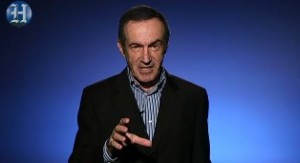I am not the only one who writes continuously on the subject and yes, we will continue to blow this horn about how Obama and the US needs to pay attention to it’s neighbors down here. Andres is an outspoken pundit on the matter and I think that he is really on point with this article.
By Andres Oppenheimer
aoppenheimer@MiamiHerald.com
U.S. diplomatic ties with Latin America, which have been in limbo for months, got a small boost last week when President Barack Obama nominated Roberta Jacobson as top State Department official in charge of Latin American affairs. But that alone will not do much to revert the gradual loss of U.S. clout in the region.
Granted, the career diplomat gets high marks from almost everybody in Washington’s small world of Latin American affairs specialists. Unlike her predecessor Arturo Valenzuela, a political appointee whose nomination in 2009 was blocked for several months by Conservative republicans, the Senate is expected to easily confirm her nomination.
House Foreign Affairs Committee Chairwoman Ileana Ross Lehtinen, R-Miami, one of the harshest critics of Obama’s efforts to work with anti-American governments in the region, told me that Jacobson has “intimate knowledge and hands-on experience in Latin America.” My interpretation: Republicans will not block her nomination.
Jacobson’s appointment would put an end to five months in which the job was left vacant, after Valenzuela’s resignation. Before her current job as acting chief of the State Department’s Western Hemisphere Affairs office, Jacobson served among other things as head of Mexican affairs, and No. 2 diplomat at the U.S. Embassy in Peru.
A well-placed Republican congressional staffer told me that “she is a highly competent career diplomat, but don’t expect her to have a vision, or to make any waves.” He added, “She will be a technocrat, who will keep the trains running.”
A knowledgeable Democratic congressional source agreed that Jacobson would be “a good program manager, a caretaker who will be good at keeping problems from reaching the president’s desk.”
Among the most urgent issues Jacobson would have to deal with would be the long-stalled U.S. ratification of the free trade deals with Colombia and Panama, the escalating violence in Mexico, and the April 2012, 34-country Summit of the Americas in Colombia.
On a wider spectrum, she would have to find new ways to improve ties with the region at a time when China has eclipsed much of the previous U.S. economic influence in South America’s commodity producing countries.
According to a recent United Nations report, the U.S. share of Latin American imports has dropped from 55 percent in 2000 to 32 percent in 2009, while the U.S. share of Latin American exports fell from 61 percent to 42 percent over the same period. The share of U.S. investments in the region has also fallen over the past decade, U.N. figures show.
My opinion: Jacobson’s rapid congressional confirmation would greatly help carry out existing U.S. policies, but will be no substitute for the Obama administration’s lack of a strategic plan for the region.
I happen to like Obama’s concept of changing the U.S. role in the region from “benefactor” to “equal partner,” as he told me in an interview earlier this year. And he has done some good things in the area, including starting a program to raise to 100,000 the number of American students going to Latin America, and vice-versa.
But the fact is that while previous U.S. administrations launched ambitious plans such as the Alliance for Progress, the Initiative of the Americas or the Free Trade Area of the Americas, Obama has not proposed any major regional initiative. What’s just as bad, there are no champions for Latin America within his Cabinet — a key factor to raise the White House’s attention to the region.
Now that Obama is preparing to run for a second term, he should start working on a new hemispheric trade initiative to create value chains that — by buying Latin America-made components for U.S. exports — would help the United States better compete with Asia in global markets, and would help Latin America export more sophisticated goods to the United States.
Washington already has a competitive advantage over China in the region: it buys mostly manufactured goods from Latin America, whereas China buys mostly raw materials that produce much fewer economic gains. America should seek an even greater U.S.-Latin American partnership to make its exports more competitive world-wide.
In addition, Washington could start much bolder educational, science and technology exchanges with the region — an area where America still excels.
It’s time for Obama to think big about Latin America, if he doesn’t want the United States to continue losing ground in the region.
Read more: http://www.miamiherald.com/2011/10/01/2433214/its-time-for-us-to-think-big-on.html#ixzz1Zpo4D143
